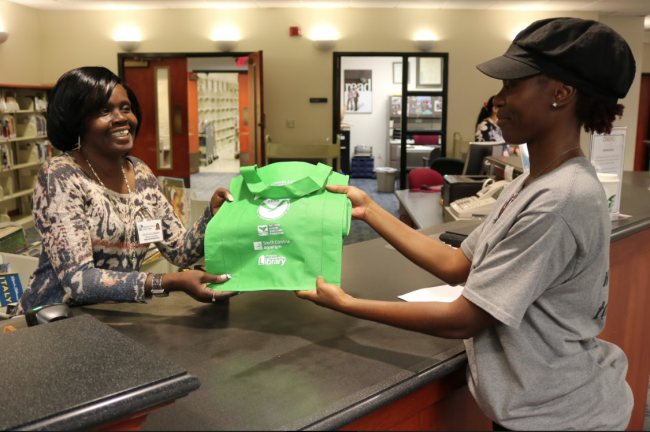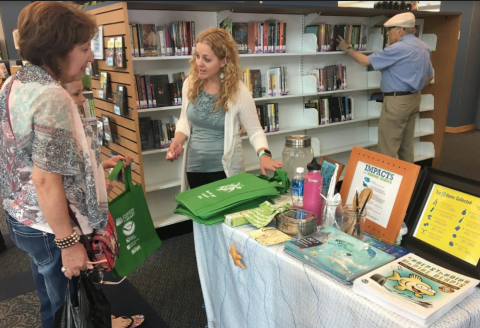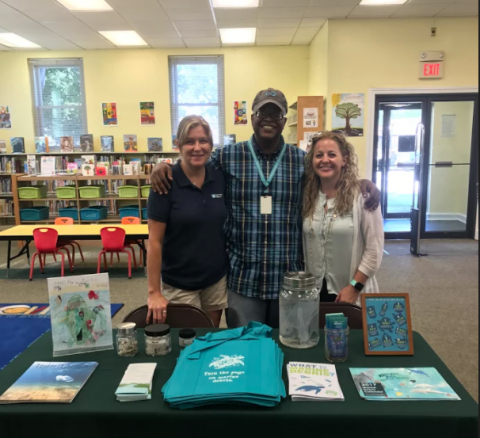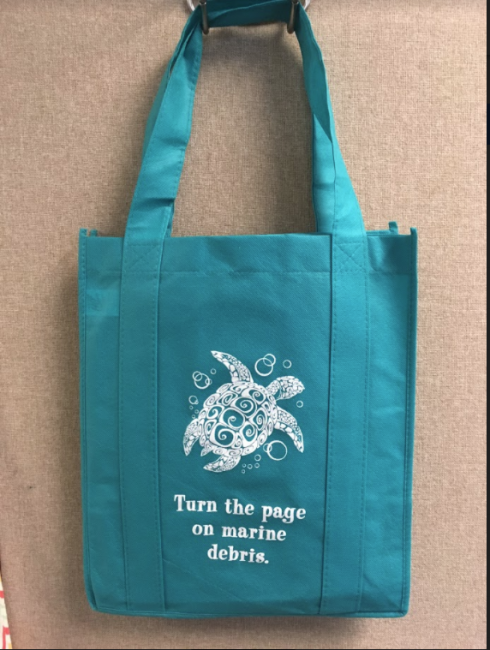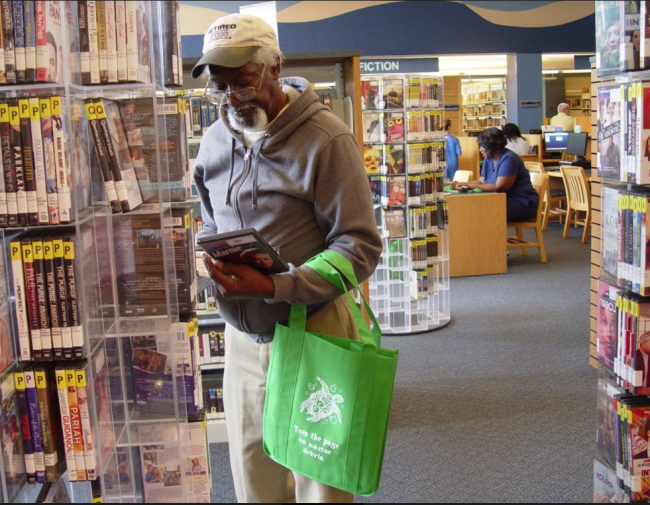By: Sarah Latshaw, Southeast Regional Coordinator for the NOAA Marine Debris Program
Plastic bags are pervasive in marine environments and are one of the most common items found during litter cleanup events. They are often blown or washed into waterways, and can be entanglement or ingestion hazards to wildlife, smother vegetation, and clog storm drains. In an effort to reduce their contribution to marine debris in coastal South Carolina, the Charleston County Public Library (CCPL), with support from the National Marine Sanctuary Foundation, NOAA Marine Debris Program (MDP), and South Carolina Aquarium, has ended their use and distribution of single-use plastic bags at all 16 branch locations!
CCPL kicked off this initiative on June 8th, World Oceans Day, this past summer. Representatives from the NOAA MDP and South Carolina Aquarium spoke with library patrons about how they can help reduce marine debris, and handed out free reusable tote bags. Patrons were encouraged to bring tote bags back to the library, as well as to use them while out shopping for other goods. Outreach efforts continued throughout the summer, with over 4,700 library visitors receiving reusable bags. The success of this initiative led to CCPL ending their use of paper bags as well, and inspired Charleston Friends of the Library to eliminate single-use plastic bags at its book sales!
Public libraries are unique in that they connect with a diverse audience, reaching people of different ages, genders, races, and socio-economic backgrounds. Therefore, CCPL’s message of preventing plastic debris moves beyond “preaching to the choir” and puts reusable bags into the hands of those who may not have considered the issue before. With a county-wide approach, this project has the potential to positively influence behavior changes that will lead to a reduction of debris of all kinds in this coastal community. Additionally, by eliminating plastic bags from all the branches, the CCPL estimates they’re removing over 20,000 plastic bags from the waste stream each year! This project emphasizes how implementing changes to prevent plastic bags at the local level can potentially have a global impact by reducing the number of plastic bags that are entering the environment in the first place.
The CCPL continues to work towards its mission, not only through the preservation of knowledge, but also through the conservation of the environment for our future generations.

